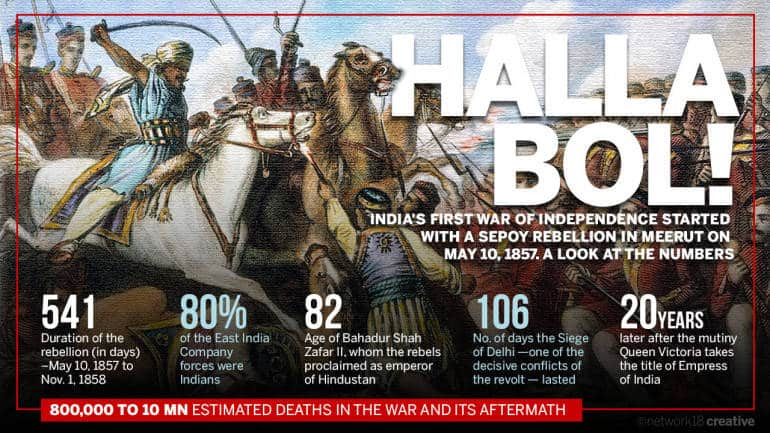



For more than a century, the British rule of India was a company-managed affair. Today, that British company is ruled by an Indian.
The East India Company started out in 1600 by carrying tea, coffee and luxury goods to the West and also trading in spices. Over the next 150 years, it grew to be so powerful that it assumed control of large parts of India through its own armies. “Company rule” as it were began around 1757 and expanded to large parts of the subcontinent.
A little over a hundred later, that power was taken away.

Dissent had been growing among the Indian soldiers deployed in the Company's army. On May 10, 1857, it finally boiled over as Indians in the East India Company’s security forces in Meerut rebelled against their employer. A group of sepoys shot dead British offers and rode on to Delhi. The uprising was quelled but the impact was far-reaching. Shortly after the 1857 mutiny, the British Crown took direct control of administrating India.
The East India Company was subsequently diminished to a small company trading in tea and coffee before being nationalised by the British government in 1874. It lay largely dormant till the early 2000s, when a Mumbai-born businessman entered the picture.

Sanjiv Mehta left India in the 1980s and arrived in the UK to set up an export business. He started with a capital of 100 pounds and eventually sold it for 80,000 pounds as he tapped up opportunities in Eastern Europe created by the fall of the Soviet Union.
He encountered the East India Company in 2003, when a group of shareholders wanted to revive the business and approached Mehta to supply them with tea and coffee. None of those individuals were from former British colonies and Mehta felt its ownership should lie in the hands of someone who understood the symbolism of the company.
Mehta began buying shares of the company in 2003 and gained complete ownership in 2005. He drew up a 25-year plan to turn it into a luxury products brand and spent the next few years extensively researching the company's history.
In 2010, he officially re-launched the company with a luxury store in London. Today, it features 350 products including tea, books, gold coins, spices mustard and jam – developed across the world and all inspired by the company’s history.
“The historic East India Company built itself on aggression, but today’s East India Company is about compassion,” Mehta said in a recent interview to The Guardian.
Discover the latest Business News, Sensex, and Nifty updates. Obtain Personal Finance insights, tax queries, and expert opinions on Moneycontrol or download the Moneycontrol App to stay updated!
Find the best of Al News in one place, specially curated for you every weekend.
Stay on top of the latest tech trends and biggest startup news.